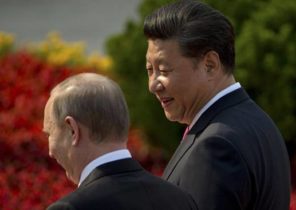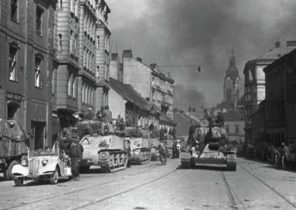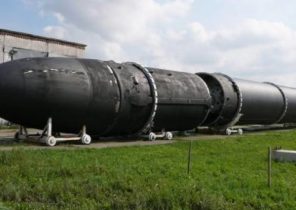
Democratization and crisis managers
The current political situation and the development trend in USA, Europe and many developing countries can generally be described as “crisis managers”. This phenomenon introduces a huge uncertainty in domestic and international politics.
The role of the leader of the country is obvious. In China the “head” is “the core”. In the political life of all humanity any organization requires the coordination and the management of its activity, so the leader must always remain a Central figure. The term “supervisor” has evolved from “leader” and “leader” of a primitive tribe, a “sovereign” of the feudal state and the “Emperor” to “President” and “Prime Minister” in a variety of modern political systems, but its main purpose has not changed.
A significant illustration of the order of things is the Japanese translation of the word “President”, which literally sounds like “the big commander”.
However, the modern democratization has brought a new meaning to the term “head of state”, and all of its duties, functions, and also the order of coming to power and leaving office was vested in the democratic sense. The President should be elected through popular vote, his power comes from the people; he cannot abuse power, because the principle of separation of powers, and so on. In the West it is believed that democracy eliminates the need of mankind in the head and at the same time is the most effective mechanism that can prevent the abuse of power at the head of the country.
Today’s crisis managers closely associated with Western democracy and, in fact, is its direct consequence. First of all, it is necessary to clarify that crisis managers does not imply that in every Western country there is no supervisor, and that elected leaders are not able to fulfill the role that is expected from them by the people. Why is this happening?
First, because of the so-called “politics of ordinary people”. The democratic system assumes that election to identify the most outstanding candidate, who becomes head of state. However, in our time elected leaders are often hard to call “outstanding.” And let difficult to judge whether he really is a “best of the best” from the experience and results of the policy it is seen that managers do not achieve proper success.
Perhaps the reason his human abilities, and possibly in excess of the limitations it faced. Anyway, the result remains the same.
On the other hand, we see that the irresponsible leaders are becoming more and more. The most obvious proof of this are the ongoing referendums. The reason for this lies in the Western parliamentary system. Modern society cannot afford to let the voters directly make the decision, so the authority of their chosen representatives. However, due to the fact that these representatives are often unable to reach consensus, developing inner-party struggle, and the head remains only to resort to the referendum. Thus, indirect democracy again becomes straight.
The referendum is a clear indicator of direct democracy, but the problem is that in many matters the people are not competent to make a decision, and therefore the voting results disappoint them. A vivid example of Prexit. The saddest thing is that a referendum when you need to answer a simple question “Yes” or “no” lead to serious divisions in society. The democratic way of solving the problem leads to a very undemocratic consequences, when 51% of the population can decide the fate of the other 49%.
The most able and talented is no longer involved in politics
Second, the traditional system in which stands out the most capable candidate is ineffective in politics. From the democratic notions of “policy” implies that participation in politics, i.e. public Affairs, is a noble cause of humanity. Since the days of Ancient Greece to modern democracy is the idea fully realized. The politics has always been a matter of aristocracy or the rich, and if, according to Marx, the capitalist class. Representatives of the aristocracy and wealthy segments of society could get a good education, and they didn’t have to worry about livelihood. Among the common artisans mainly found people with a simple primitive desires.
Mass democracy means equal rights and more opportunities for ordinary people to participate in politics. However, in this case policies are not professionals, and policy for them is a simple job, due to which they feed their family Policy is no longer “noble” thing, and the politicians themselves get more and more restrictions.
Thus, the most deserving never choose politics as their profession, but prefer business, culture and other fields, because can there to show in full.
In our days, and in both developed and developing countries clearly, there is a trend of the elevation of politicians from social movements. Of course, this is not a new phenomenon. Every crisis in democracy there were different social movements, and always from such movement was distinguished politician of the populist movement.
The rise of anti-colonial movements in developing countries after the Second world war spawned a lot of politicians. It is not difficult to explain, so as to overcome colonial rule and the policies needed to mobilize the dependent people, but it was not so easy. Today, the populist right and left are everywhere. On the one hand, they create new conditions for new politicians, including heads of state, on the other hand, make a huge uncertainty.
Fourth, the return of strong people and strong policy. The rise of populism in politics contributes to the transformation of political practices and the transition from traditional to institutionalized politics and social movements. The policies that emerge from these social movements often have strong political characteristics, and work contrary to existing regulations. Violation of the rules — the main feature of populism. Western democracy is generally regarded as high and even excessive institutionalization. However, the leaders of the populists could seriously harm the current political system. This is clearly evident from the rise of trump.
Therefore crisis leaders is evident not only in the inability of the traditional rulers, but also in the rise of politicians of a new type, carrying with them large uncertainties. These two politicians are complementary to each other, since the second occurs due to the weakness of the first. Why would this phenomenon?
The change in the socio-economic structure
Socio-economic formation is determined by the type of policy or leader. In human society since ancient times, there were different types of leaders and the type depended on the social, economic and political structure of the country.
The current crisis is caused by changes in the social and economic structure, while in the political system and the method of electing the head of the country, nothing has changed. The Western democracy that we have, is a product of modern industrialization. The industrial revolution has modeled the current economic and social structure, respectively. The diversity in these structures creates a pluralism of interests, which lies at the heart of representative democracy.
However, many years of globalization and change in the technical conditions have already changed socio-economic structure. Globalization has led to the rapid flow of capital and technology that accelerate the efficient allocation of economic resources worldwide. This largely led to a rise in labour productivity and created unprecedented benefits for humanity.
However, the distribution of wealth between different social groups has been uneven and unfair. It passed the minority and the majority is not benefited from globalization, many have become victims of globalization. As a result, there was a strong stratification in society. The middle class is shrinking, because technological progress benefits only a narrow stratum of people, and many others work. It is obvious that today’s politicians don’t represent the real interests of the people.
The need for political reforms
The looming crisis may be overcome only by reforming the political system. For 200 years, modern Western democracy has undergone profound changes in economic, technological and social aspects, but its structure and form remains the same. The rise of populism only reinforces the need for reform. In the process of reforming the West needs to answer a number of questions. How to create politicians of a new type? How to prevent their abuse of power? How to update the mechanism for the containment of power and representative democracy? Are there necessary conditions for the conversion of indirect to direct democracy? How to guarantee the coming to power of the most worthy?
The history of Western democracy ends. The rise and flourishing of populism are the beginning of a new history of the Western system.







